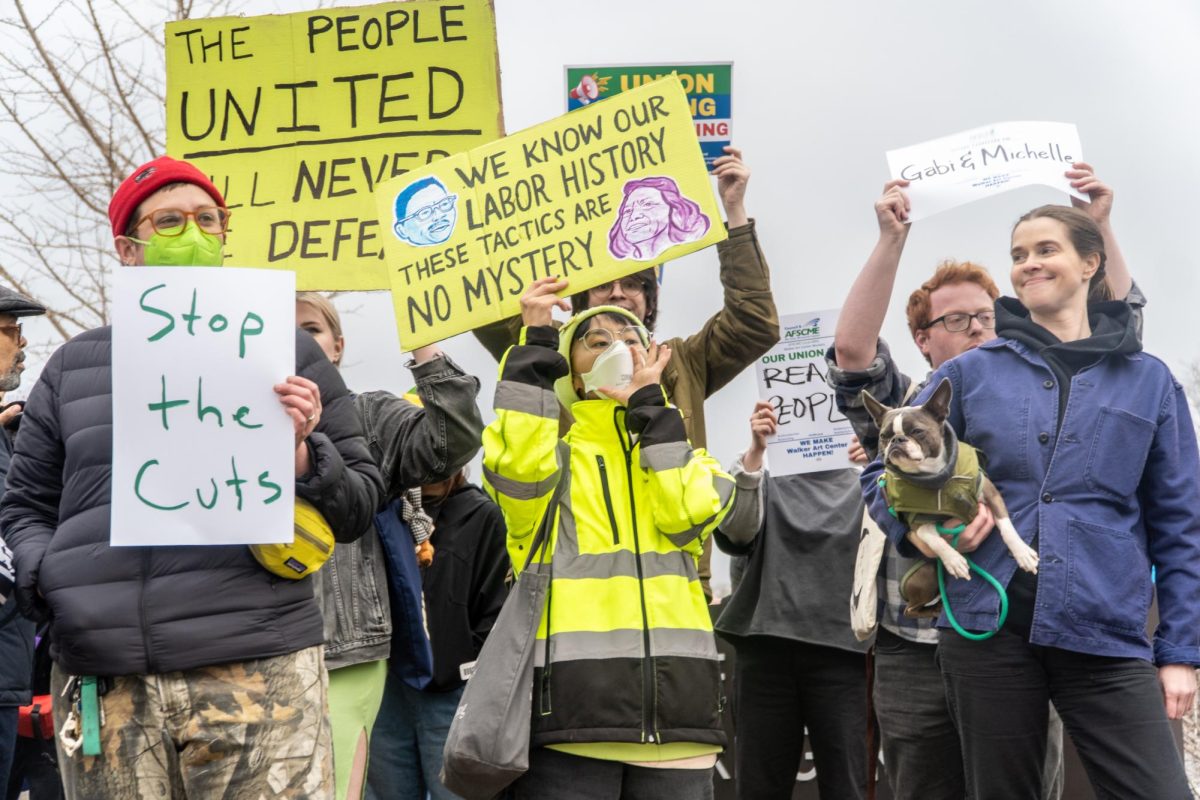The saxophone is primarily characterized as a jazz instrument. Readily associated with titans like John Coltrane, Sonny Rollins and Wayne Shorter, it’s often given the short stick in the classical world and isn’t allowed in orchestras.
The Ancia Saxophone Quartet, however, aims to change that by incorporating saxophonics into the contemporary classical medium.
Their upcoming concert at the Weisman Art Museum features an eclectic repertoire, with pieces from Estonian minimalist Arvo Part, French organist Thierry Escaich and symphonic band favorite John Mackey — all compressed for a saxophone quartet.
A Radiohead arrangement will close out the performance.
The Minneapolis-based quartet, founded in 1990, has toured internationally and was featured at the World Saxophone Congress, a semiannual symposium dedicated to the saxophone in classical and contemporary music.
“The saxophone world isn’t that large, so [we formed] mostly through connections,” baritone saxophonist Angela Wyatt said. “[Tenor saxophonist] David [Milne’s] wife saw a posting at Schmitt Music that said, ‘We’re looking for a tenor player.’”
Though baritone saxophonist Wyatt is the group’s only original member, the current incarnation has been long-standing, with Milne on tenor, Joan Hutton on alto and Matthew Sintchak on soprano saxophone.
Ancia’s repertoire is mainly contemporary classical music, a post-modernist retreat that embraces complex rhythms and dissonance as consonance.
“Our mission is to promote the music of our day … and to blend that with traditional works from previous generations,” Milne said, “so that when we present a concert, people can hear something that they like and learn a little bit on the way.”
The quartet makes a point of collaborating with prominent composers. It’s currently working on a piece titled “Confluence” with Libby Larsen, a co-founder of the American Composer’s Forum and a University of Minnesota alumna.
The work is based on the intersection of rivers and the energy produced there, Milne said, while tackling some environmental themes.
“I believe [Larsen is] going to address the notion that human impact on the environment and on the rivers and specifically on these confluences is something we should all look at,” Milne said.
Even past their work on “Confluence,” the Ancia quartet plans to continue incorporating these themes in their music.
“My husband and I are climate change activists,” Wyatt said. “Ancia wasn’t formed for that purpose, but we’re all pretty progressive and aware and interested in the change, so we’re trying to figure out how we fit into that.” As far as the state of classical contemporary music goes, Milne said it’s alive and well.
The number of talented composers is growing, he said, but finding performance outlets can be a struggle.
“The challenge for these composers and the ensembles that present [their work],” he said, “is finding the opportunities to do that.”
What: Ancia Saxophone Quartet
When: 4 p.m. Sunday
Where: Weisman Art Museum, 333 E. River Parkway, Minneapolis
Cost: Free













